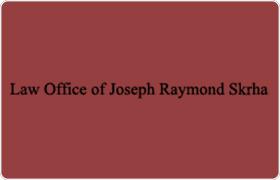Nunapitchuk Misdemeanor Lawyer, Alaska
Sponsored Law Firm
-
 x
x

Click For More Info:
-
Law Office of Joseph Raymond Skrha
110 N Willow St Suite 137 Kenai, AK 99611» view mapCriminal Defense Law Vigorously Protecting Your Rights
You need an attorney with criminal defense knowledge who will vigorously protect your rights and interests.
800-950-6960
Not enough matches for Nunapitchuk Misdemeanor lawyer.
Below are all Nunapitchuk lawyers.
Jim Valcarce
Employment Discrimination, Criminal, Personal Injury, Accident & Injury
Status: In Good Standing
 Joseph Skrha Kenai, AK
Joseph Skrha Kenai, AK Practice AreasExpertise
Practice AreasExpertise
